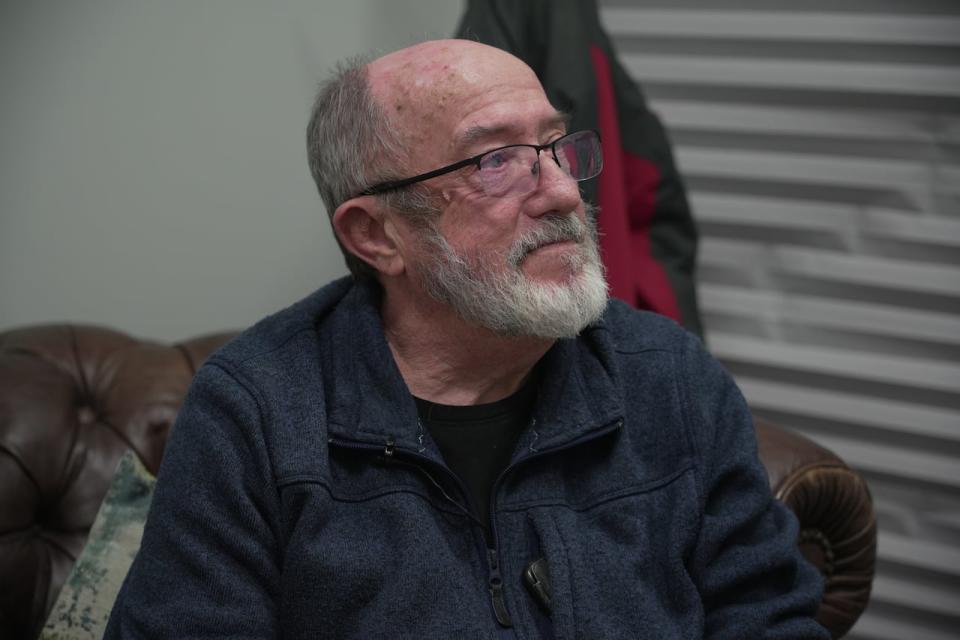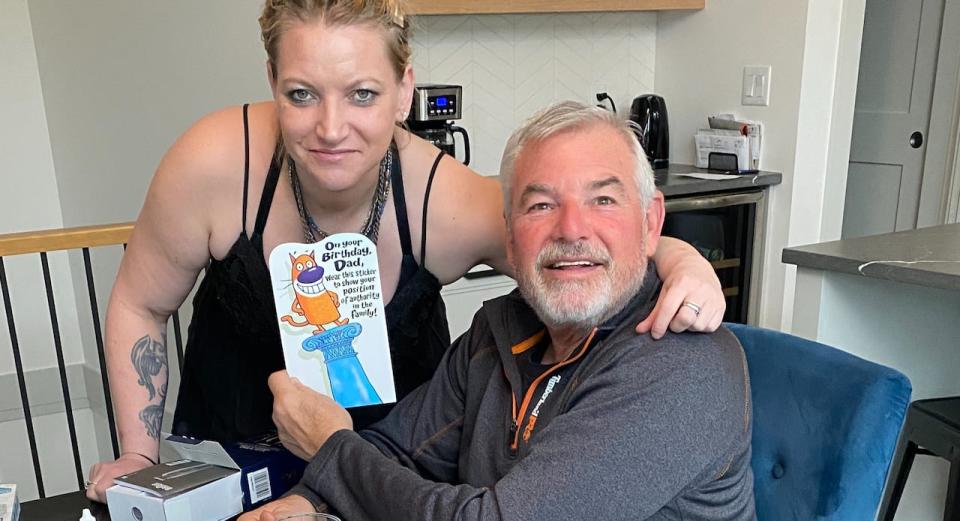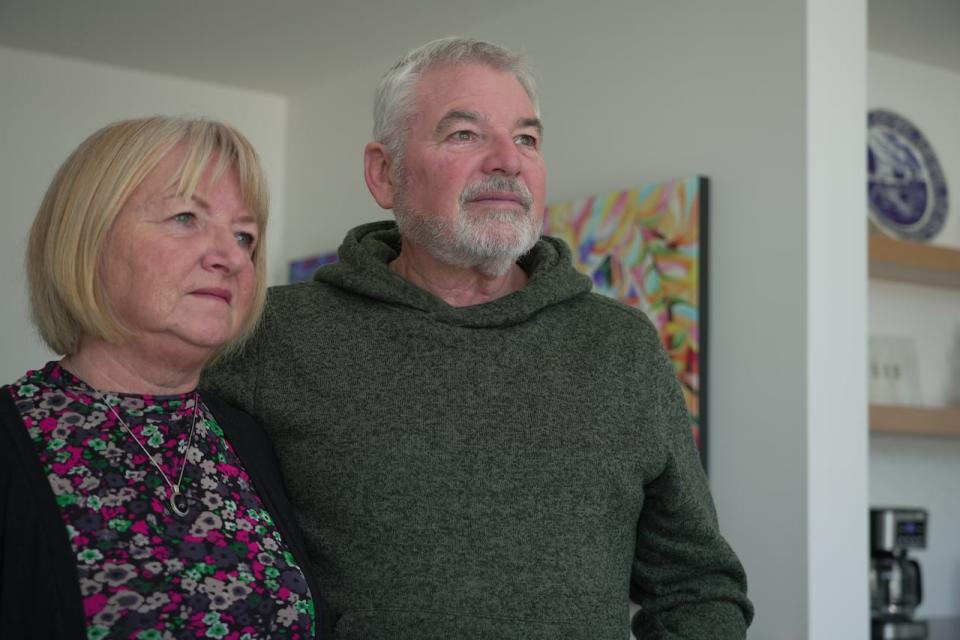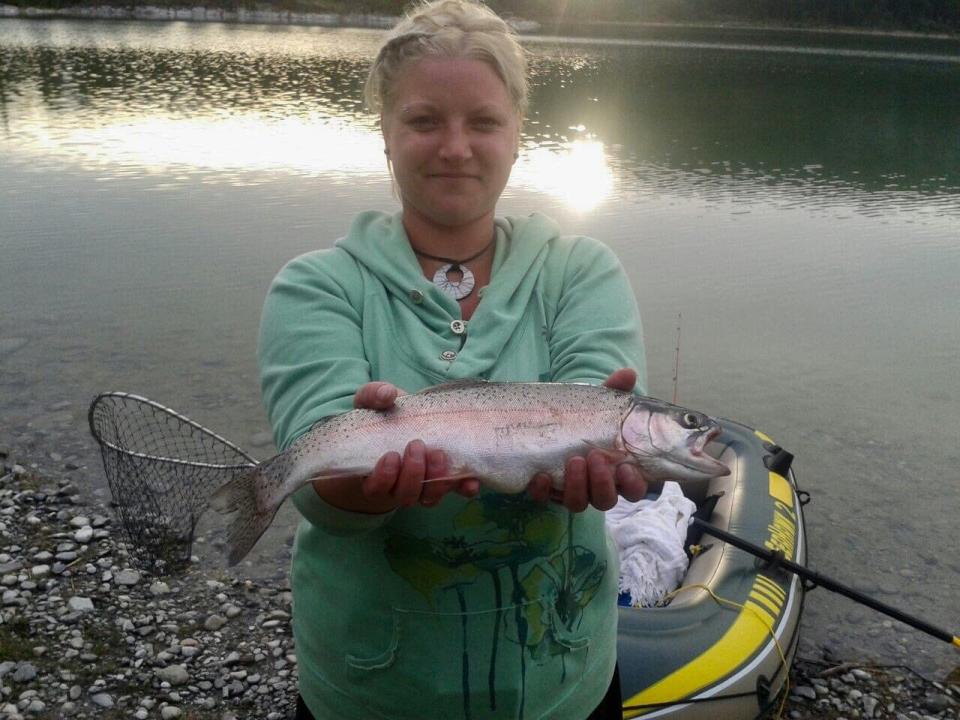Loved ones of B.C. harm-reduction advocate who died of drug poisoning say safe supply needed

WARNING: This story contains details of drug overdose.
The friends and family of a harm reduction advocate in B.C.'s Kootenays are calling for a safe supply of drugs after she died of drug poisoning last year.
Krista Smith died in Cranbrook, B.C., on Nov. 29, 2023 from a toxic combination of methamphetamines and fentanyl, according to her parents. She was 42.
Smith was one of the first people in B.C.'s East Kootenay region to launch a peer network for people who use drugs, forming the East Kootenay Network of People Who Use Drugs (EKNPUD) in 2020.
She also volunteered with ANKORS East Kootenay, an outreach organization that focuses on harm reduction and education.
"Krista had done a lot of good things for us," said Gary Dalton, one of the founders of ANKORS East Kootenay.
He says Smith was known for her volunteer work, helping ensure people had access to harm reduction supplies and connecting them to life-saving services like drug checking, which ANKORS offers.

Gary Dalton, a co-founder of ANKORS East Kootenay, is pictured in Cranbrook, B.C., on Jan. 16. He says Krista was known for her volunteer work and helping connect people with services like drug-checking. (Corey Bullock/CBC News)
Though Smith lived in Cranbrook — about 533 kilometres east of Vancouver, and 85 kilometres west of the border with Alberta — Dalton says she would sometimes travel all the way to Vancouver's Downtown Eastside to help.
"It was those kinds of unexpected engagements that Krista was able to participate in to move the needle forward for everybody," he said.
'A kind soul'
Smith grew up on Vancouver Island and moved to Kimberley, about a 28-kilometre drive northwest of Cranbrook, with her family when she was in Grade 7.
"She was a kind soul. She would help anybody that came her way, any way she could," her father, Jim Smith, said. "She had a wonderful childhood, I think. She was always happy."
A car accident changed her life when she was a teenager and she was prescribed opiates to help manage the pain, Jim says.
"This is why she ended up 20 years later with a full-blown addiction to opiates."

Krista and Jim Smith are pictured during a birthday celebration. According to Jim, Krista was a teenager when she experienced a car accident and was prescribed opiates for pain management. (Submitted/Alice Smith )
In November, while Krista's parents were on holiday, they had trouble getting a hold of her. They tried contacting her multiple times, but figured it was an issue with her phone.
"That was not unusual," Jim said, adding he went to her apartment the day they got home.
"I let myself in after yelling through the door, and no answer, and I discovered her, myself, on the floor…"

Alice (left) and Jim Smith are pictured in Cranbrook, B.C., on Jan. 13, 2024. Jim, among others in the East Kootenay city, says a safe supply of drugs is needed to help people with drug addiction. (Corey Bullock/CBC News)
The B.C. Coroners Service told CBC News in an email that an investigation into a death in Cranbrook on Nov. 29 is ongoing, but could not confirm details because of privacy reasons.
According to data from the coroners service, between January and August 2023, 14 people died from unregulated drugs in the southeastern B.C. city. Data from September to December is not yet available.
The data also shows 58 people have died from drug poisoning in Cranbrook since a public health emergency was declared in B.C. in 2016. Across the province, a total of 13,112 people have died.
'Completely volatile' drug supply
James Kaufman, a drug-checking technician at ANKORS, says the supply of illicit drugs in Cranbrook is becoming increasingly toxic.
He says most of the people accessing ANKORS' drug-checking services are using "down," the name given to a fentanyl-based drug on the street.
He says around the beginning of the pandemic, drug checkers across the province began to see benzodiazepines added to down.
"Benzodiazepines are a depressant, and when added to 'down' alongside Fentanyl (also a depressant) it makes the substance especially risky," Kaufman wrote in an email to CBC News.
"Our community had a lot of people pass away when this happened."
He says benzodiazepines were initially testing at a level of around five per cent, but now they are finding upwards of 20 per cent in drugs.
"To put this into perspective, people were dying when Benzos were added in the one to three per cent range. With all this in mind, one can see how completely volatile our down supply in this province is, and why people are dying at the rate that we are seeing."
Calls for safe supply
Jessica Lamb, co-founder of EKNPUD, says Krista was doing advocacy work long before they formed the group.
"I think the thing that, like, makes me the most sad right now about all of this is — of the six of us that started this group, there's only three of us that are left," Lamb said.

Although Krista lived in Cranbrook, B.C., she would occasionally travel to Vancouver's Downtown Eastside to help out, according to ANKORS East Kootenay co-founder, Gary Dalton. (Submitted/Alice Smith)
She says a safe supply of medical and non-medical drugs is what's needed.
"We're not going to treatment our way out of this, we're really not. We need to love and accept people where they're at."
She cited the Drug User Liberation Front in Vancouver which, together with the Vancouver Area Network of Drug Users, applied for an exemption to Section 56(I) of the Controlled Drugs and Substances Act, to operate a compassion club model for hard drugs in 2021. It was rejected in July the following year.
Lamb says bringing a safe supply to Cranbrook would involve different agencies coming together to apply for the same exemption.
Dalton says while there are many programs, like drug checking, that help save lives, it's not enough.
"We may not be able to resolve [the toxic drug crisis] right now, but we don't have an effective response for it," he said.
"Especially in the East Kootenays. We're a small enough community that we should be able to have a response that has some effect."
Krista's parents agree.
"We should be getting a safe supply, I think … Politicians need to quit ignoring the problem and help people," Jim said.
"Children aren't supposed to die before their parents."


